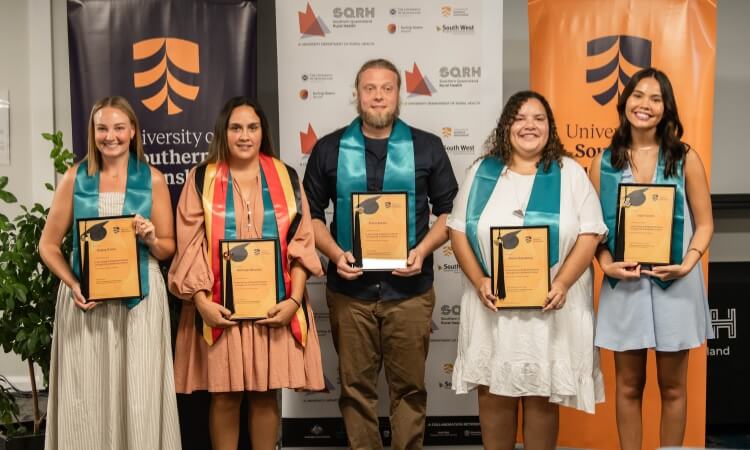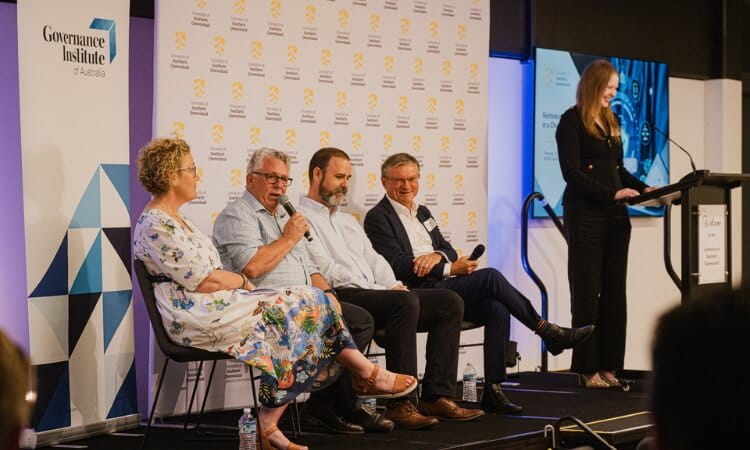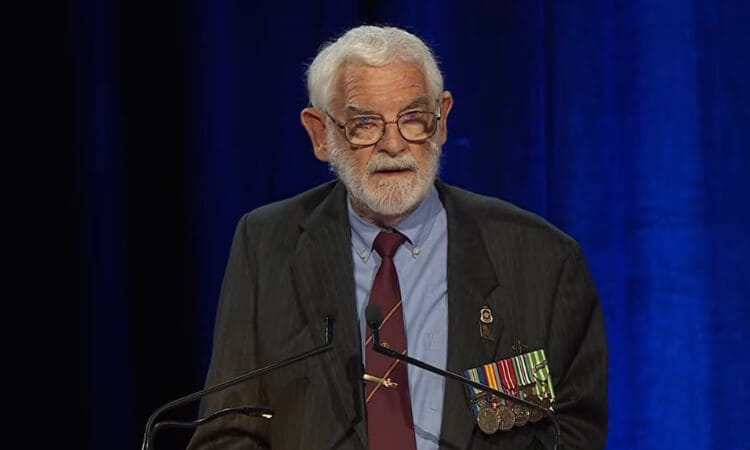The trial of the so-called “mushroom cook” Erin Patterson, currently underway in the Victorian town of Morwell, continues to generate global attention.
The mother of two is charged with three counts of murder and one count of attempted murder, all of which she denies.
Due to the regional location of the hearing and Australia’s conservative attitude toward the use of cameras in the courtroom, many people are following the case via podcast. This is not surprising, given Australia has among the world’s highest percentage of podcast consumers.
Currently Apple Australia’s Top 10 True Crime podcast chart includes three network-backed podcasts dedicated to the mushroom case. They essentially present the same information, but through different formats and structures, and to varying degrees of success.
Unlike cold case investigations, which are retrospectives that focus on breakdowns in the legal system, real-time true crime podcasts unpack complex issues and provide information to listeners while a case is under judgement.
Death cap dinner claims recapped
Prosecutors allege in July 2023 Erin Patterson laced four beef wellingtons with death cap mushrooms and served the deadly lunch to her parents-in-law, Don and Gail Patterson; Gail’s sister, Heather Wilkinson; and her husband, Ian Wilkinson. But the defence has raised doubts about those claims.
The trial, now in its third week, has captured the nation. The jury has heard from Erin’s children, along with Facebook friends and the sole surviving guest Ian Wilkinson, a pastor who spent almost two months in hospital following the lunch.
Justice on demand
In Australia, the principle of open justice – that justice should not only be done, but be seen to be done – is a cornerstone of the legal system. This includes making fair and accurate reports of judicial proceedings, and ensuring court information is accessible to the media and public.
New media forms, such as podcasts, also depend on democracy and accessibility. Anyone can speak and anyone can listen, anywhere, at any time. So true crime podcasts have naturally (and sometimes problematically) converged with the process of open justice.
Take The Australian’s 2018 podcast The Teacher’s Pet, which followed the controversial investigation of the disappearance of Lynette Dawson from the northern beaches of Sydney in 1982. It marked the first time in Australian legal history that a serialised podcast was cited as the primary reason for an application for a permanent stay of proceedings.
While the permanent stay was denied, the court did grant a temporary stay for nine months. At the hearing, Justice Elizabeth Fullerton called the podcast “the most egregious example of media interference with a criminal trial process”. She described it as “overzealous”, “uncensored” and “imbued with hubris”.
But there are some key differences between The Teacher’s Pet and the new mushroom case podcasts.
The Teacher’s Pet resurrected a cold case, and uses investigative journalism to propel interest in the real-time solving of the case, with listeners’ help. This process, known as jurification, positions the podcast host as a journalist-turned-investigator, and the listeners as jurors weighing up the evidence.
In contrast, the podcasts on the Patterson case largely rely on objective reporting to build on listeners’ understanding of the context that led to the tragic deaths of three people. These podcasts include no explicit judgement of evidence. And this allows them to skirt the potential for “trial by media”.
The Mushroom Case Daily
One of the most popular podcasts tracking the Patterson case is the ABC’s Mushroom Case Daily.
As the top-ranked podcast in Australia’s Apple charts at the time of writing, the Daily provides digestible summaries of key moments in the trial, with court reporter Kristian Silva and producer
Stephen Stockwell (Stocky) recording daily from a makeshift studio in Morwell.
As the first podcast of its kind in the market (starting in March 2024), the Daily is informative and engaging, but not sensationalist or self-serving. It reports on the facts, but does not shy away from empathetic identification with the victims – helping the audience feel involved in the story.
Interestingly, the Daily even builds empathy for Patterson herself. It humanises the accused by reporting on her emotional displays, and by seeking to understand her actions and reactions, rather than merely vilifying her.
The Daily also refuses to speculate about whether Patterson is guilty or not, as do its competitors. In doing so, it upholds the legal and ethical obligation of court reporters to maintain impartiality and not misinterpret or misrepresent information.
At the same time, it is one of the more intimate accounts of the trial, with a relaxed and conversational style. It’s also more interactive than its rivals, as listeners are encouraged to write in with questions.
The Mushroom Cook and Say Grace
The Mushroom Cook: The Trial and The Mushroom Trial: Say Grace are also popular with listeners.
Both are uploaded regularly, with a goal to summarise the events of the day’s trial and highlight the most significant revelations.
The Mushroom Cook is presented by Herald Sun journalists Brooke Grebert-Craig and Laura Placella. It began in April 2024 with a detailed explanation of the case, in anticipation of the criminal proceedings, and has continued to report on developments over the past year via short episodes of 15 minutes or less.
Say Grace, a 9Podcast presented by Penelope Liersch (Nine) and Erin Pearson (The Age), started on April 20 of this year, the day of jury selection. It provides more detailed episodes of about 30 minutes in length.
Unlike the Daily, both of these podcasts use reenactments with voice actors performing the witness testimony. This provides a sense of authenticity and immediacy; listeners feel like they themselves are in the courtroom, privy to the evidence. However, the ethics of reenactments in video and audio documentary are murky. While some people say they aid understanding, others may see them as introducing bias or distorting reality.
Like the Daily, both The Mushroom Cook and Say Grace are acutely aware of the potential ethical and legal risks of reporting on the case. They take care to avoid conjecture and misrepresentation, such as by using explicit disclaimers before reenactments.
Although both podcasts are presented in a casual and conversational style, Say Grace offers more in-depth commentary on the case, using descriptive language to paint a vivid picture of courtroom proceedings.
Ultimately, each of these three podcasts is serving more than listeners’ suspicions; they are providing an important public service by reporting the truth and preserving open justice..
The article has been republished from The Conversation under the Creative Commons license. Read the original article.




